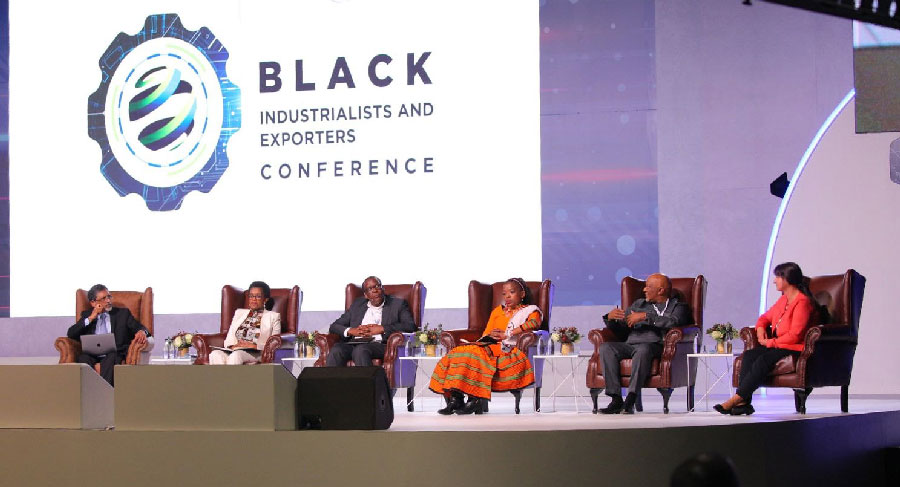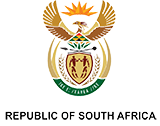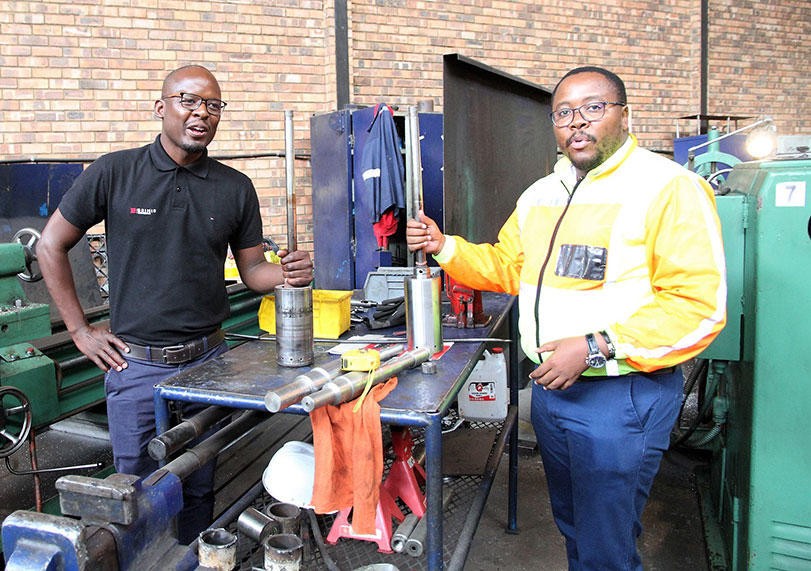Supporting growth industries
Since 2018, we have secured over R770 billion in investment commitments across a wide range of economic sectors as part of our ambitious drive to raise R1.2 trillion in new investment over five years.
While we help existing industries to grow, we are also nurturing new opportunities for growth and jobs. Government and the private sector have worked closely together to grow the global business services sector from a small group of companies to one of the world’s leading players.
The global business services sector is on track to create 500 000 new jobs over the next few years.
By the numbers
R773.6 billion
Invested in 152 projects
R52.7 billion
37 projects completed
5 000+
Jobs created
Special economic zones
Special economic zones (SEZs) are geographically designated areas set aside for specifically targeted economic activities. The programme focuses on driving and growing manufacturing-led industrialisation.
These 13 zones offer investors targeted investment incentives, preferential tax rates and export support. SEZs provide an attractive manufacturing base for companies seeking to supply both local and international markets.
Black Industrialists Programme

Since its inception in 2015, the Black Industrialists Programme has been driving the growth and global competitiveness of black-owned businesses across South Africa. The programme creates an enabling environment for black industrialists and workers who were previously denied access to opportunities for economic ownership and participation.
Since 2019, government has been developing master plans in different sectors of the economy – ranging from clothing to sugar, steel and poultry – which have dedicated sections dealing with the promotion of black industrialists.
The programme is key to realising the objectives of the Economic Reconstruction and Recovery Plan announced by President Cyril Ramaphosa in October 2020. By empowering black-owned businesses, the programme contributes to the revitalisation of key sectors, the creation of new jobs and overall economic recovery.
In the past five years, some R24 billion has been committed for black industrialists. The impact of the initiative is clear from the R100 billion in turnover generated by black industrialist-owned businesses each year, as well as the 100,000 direct jobs sustained in their factories, mines and farms.
The Black Industrialists and Exporters Conference, was held in March of this year, where government pledged its support for the endeavours of black and women entrepreneurs, while recognising and celebrating black excellence in the economy.
Employee Share Ownership Programmes (ESOPs), also known as Worker Share Ownership Programmes (WSOPs), are an effective empowerment tool that broadens ownership and control of the economy, particularly among previously marginalised groups. By enabling employee ownership in companies, ESOPs enable workers to own a stake in the enterprises they work for.
These schemes are an opportunity for workers to not only share in the profits of their labour but also to participate in strategic corporate decisions.
Government provides guidance on the design and implementation of these programmes through the Department of Trade, Industry and Competition. The Industrial Development Corporation, the National Empowerment Fund and other entities provide catalytic funding.
In South Africa today, more than 500,000 workers are part-owners of the companies they work for. This equates to one in every 20 workers in the formal private sector.
The first Worker Share Ownership Conference was held in April this year.
Beyond the principle of social justice, worker ownership initiatives make sound business and economic sense. They are key to building a more resilient economy whose benefits flow equitably through society.”
President Cyril Ramaphosa
Cumulative value of investments has increased by 18% year-on-year from R18 billion to R22 billion
In the media
Citibank SA invests in creation of new Vaal international airport
The local arm of US banking group, Citibank South Africa, has pledged R1.375 billion to develop a new infrastructure project in the Vaal area of Gauteng, which will include a new "sizeable" international airport.
News24
FIKILE MAJOLA: New approach to development of special economic zones
The literature is replete with case studies that illuminate how special economic zones (SEZs) have been instrumental in catalysing industrial development.
BusinessDay





.jpg)